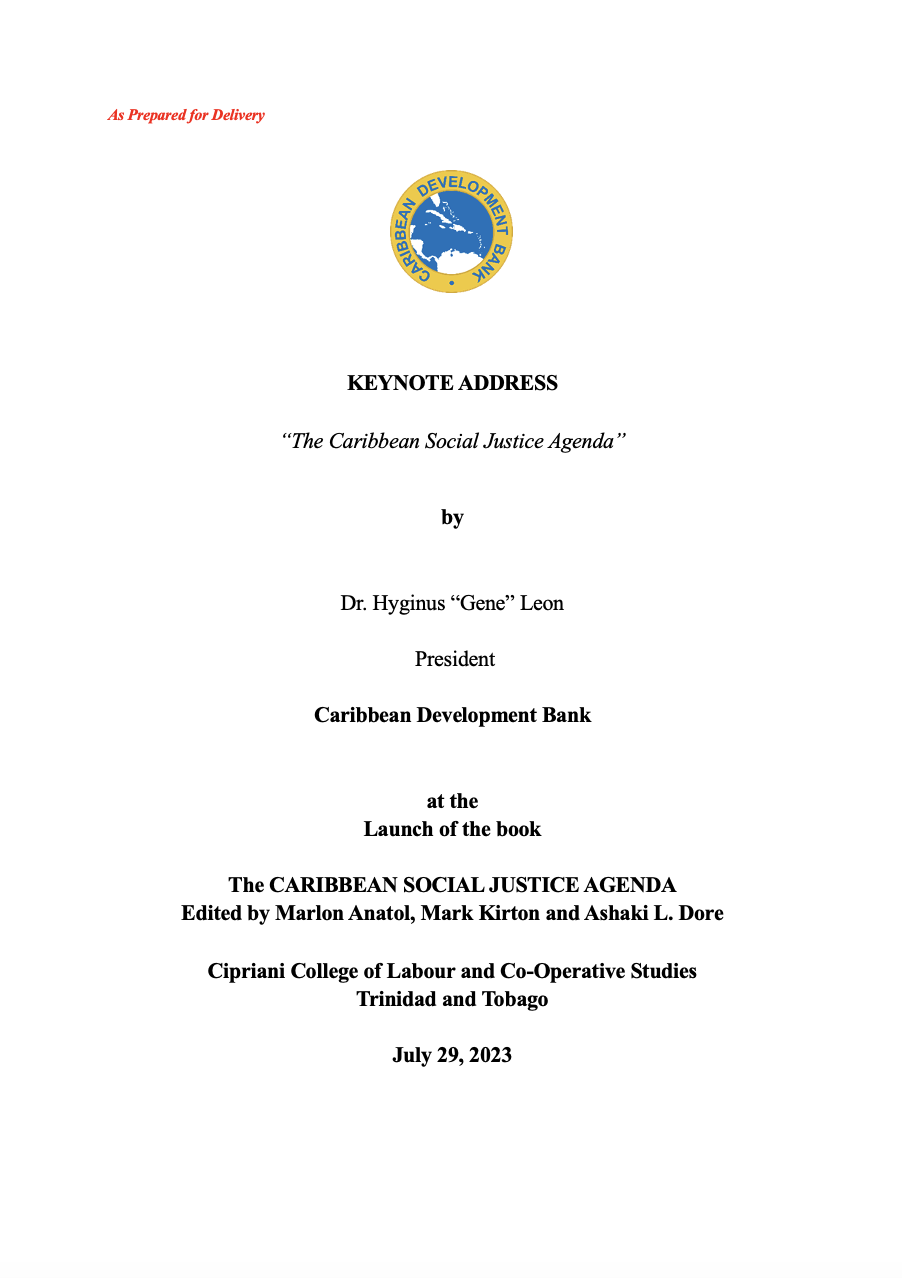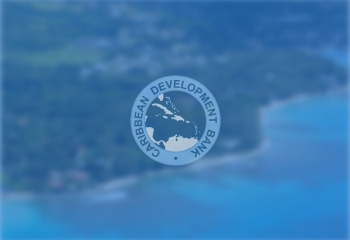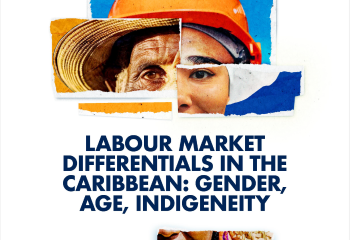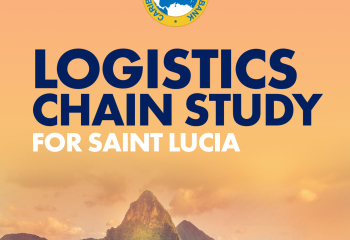Keynote - The Caribbean Social Justice Agenda

It is a pleasure to be back in Trinidad and Tobago so soon after attending the celebrations of the historic signing of the Treaty of Chaguaramas (formation of CARICOM) half a century ago. At the heart of that experiment, is the prosperity of our people - people like you, me, our families, our friends. Undoubtedly, the 50-year mark is an opportunity to reflect and chart a course for thriving in a sustainable and self-determined future. Yet, if we consider the fragile and precarious context that now characterises our existence, we may feel it is always “one step forward, then two steps backward” as a popular calypso in Barbados goes.
COVID-19 was a jolt to the international system. For the Caribbean Development Bank and more widely the development community, we saw the effects on our fragile social and economic systems, especially in small developing countries. Indeed, for the last 30 years, the Caribbean has had to grapple with the blunt force trauma of a wide range of external shocks, both natural and manmade. COVID-19 compelled all of us to focus even more sharply on finding solutions to sustain our people, based on evidence and an intimate knowledge of our environment. The acid test though is do we have appropriate solutions for the next 50 years? Can we design the writing of our future history? Should we be passive observers in how our history unfolds?
There are two existential challenges in addressing the issues that confront us and they have been well documented. The first is that as small, open economies, existing in a globalised economic and social space, we are very susceptible to phenomena over which we have no control. Secondly, our small size has limited the resources available to us internally while our debt profile have defined the resources available externally to address our pressing challenges. I posit our future – one in which there is resilient prosperity for all – will be defined by how we utilise the resource we have in abundance and over which we have total control — our Caribbean minds, which has excelled in creativity, ingenuity, and beyond expectations.
It is in this context that I welcome the publication of The Caribbean Social Justice Agenda. I am convinced that the production of knowledge products that interrogate and lay bare the traumas of our shared history and challenge us to throw off those shackles and define solutions are essential to delivering on the promise of resilient prosperity for our people. If we accept that social justice exists when "all people share a common humanity and therefore have a right to equitable treatment, support for their human rights, and a fair allocation of community resources” (Toowoomba Catholic Education in 2006), wouldn’t it be appropriate to declare that there cannot be development of a nation without social justice of its people? Indeed, social justice promises change, increased access to rights and dignity, and maximisation of the potential of a people. In order for us to achieve that resilient prosperity and indeed social justice for our people, we must act now, and we must do so with urgency, agility, and dexterity.
At CDB, we see climate change, connectivity (integrated land, air, and marine logistics, digital and utility unified grids), implementation capacity, and social cohesion as defining challenges to be addressed to secure our future. In the same vein, this timely publication appropriately reflects this Caribbean context of urgency and intersecting issues, with authors underscoring digital transformation, energy security, and social protection as the major pillars on which our sustainable trajectory must be secured.
Colleagues in delivering this review I want to use this opportunity to add voice to themes explored in the book and demonstrate its alignment with the Bank’s development agenda. First, the theme of social justice is fully aligned with the CDB’s advocacy of a holistic, systems approach to development. Allow me to elaborate that the core of our approach rests on two principles: first, the definition of system must be complete and comprehensive — this embodies the linkages that exist across productive, social, institutional, environmental, and financial elements of societies. So, we cannot do development without recognising and addressing the internal coherence of whole system. Second, the dynamics of motion of the system must be such that system integrity has to be preserved over time. This suggests that any distortions in the system will eventually compromise the integrity of the definition of the system and consequently its dynamics of motion. Therefore, the attainment of any desired trajectories of development must not only ensure coherence within the system at a point in time, but consistency of systemic integrity over time.
Thus, we advocate for two key principles to underlie all policies aimed at influencing behaviors for advancing development trajectories — (a) sustainability, based on strengthening resilience (capturing temporality), and (b) inclusivity, based on narrowing inequity (capturing systemic definition and integrity). Let me note that inclusivity for us encompasses social inequity, marginalised groups, and disadvantaged communities, and that the persistence of these inequities promotes tensions that distort the definition of the system. Consequently, addressing these inequities across all parts of the system is essential to attain system integrity and the social justice discussed in the publication. While the publication does a deep dive at various elements of the system, we would add that in implementing the policies advocated, it would be necessary, in the spirit of our framework, to stack and assess the policies for internal coherence and temporal consistency if we are to ensure specified development outcomes.
Let me turn first to the issue of social protection. Disparities in access to resources, as well as in capabilities, underpin social injustice in societies. Within CDB, social justice is operationalised in pursuit of human rights, fairness and equity, ensuring that all citizens live dignified and fulfilling lives and no one is left behind.
The strong synergies between social justice and social protection were underlined in political philosophy, for example, in the works of Rawls on the value of fairness and the just distribution of social goods such as rights, liberties, opportunities, and wealth. For others like Young, the relationship between social protection and redistribution takes a broader dimension resulting from the interplay of existing social structures, political institutions, and power relations. Sen’s functional capability explains this relationship by linking access to welfare and the creation of just societies to an individual’s ability to engage in economic and political activities. The choice of social protection interventions and their perceived distributional impact depends largely on how individuals see and experience social justice.
Whether protection is provided in the form of safety nets to mitigate the impact of economic shocks or in the form of transformative measures aimed at addressing structural deficits that lead to impoverishment and injustice, rests upon decision-makers’ approach to social justice. Moreover, social justice and social protection share a common denominator: rights.
Under these frameworks, social protection is an indispensable ingredient in the social contract in which State Parties are legally bound to respect, protect, and fulfil their obligations by ensuring the provision of basic subsistence, essential primary health care, basic shelter or housing, and basic education. Governments, in the vein of social justice, also have the specific obligation to protect vulnerable groups and to use available resources to realise the right to social protection of all members of society.
The status of social protection systems in the Region is reflective of the incrementalist model of development planning and decision-making. Social protection programmes are mostly conceived and implemented as reactions to risks and vulnerabilities that emerge and often represent attempts to cope with potentially difficult circumstances. The fact that a significant number of programmes in the Bank’s Borrowing Member Countries portfolios tend to be supportive and/or ameliorative, points to their reactive nature.[1]/ A small fraction of social protection systems can be categorised as preventive and designed to build resilience to shocks. The Programme for Advancement through Health and Education in Jamaica, a conditional cash transfer programme based on the social contract principle and incorporating psychosocial support, is an example of a preventive programme. Barbados, Belize, Trinidad and Tobago, and Saint Lucia have established similar systems based on the Chilean Puente Programme[2]/ Model.
The impacts of COVID-19 amplified the need for Governments to not only provide short-term shock-responsive social protection programmes but critically, to enhance future resilience in their social security/national insurance schemes. As a result of the sheer number of job losses due to the pandemic within a short space of time, Governments have recognised that the lack of unemployment insurance or other suitable mechanisms, presents a unique structural vulnerability for Borrowing Member Countries (BMCs), particularly given their undiversified economies, which are often tourism dependent. Unemployment insurance or a similar programme is recognised as important to countries’ poverty prevention strategy, given that it guarantees persons a minimum amount of income when they are experiencing cyclical unemployment due to downturns in the economy or frictional unemployment when they are deliberately job-searching. Furthermore, unemployment insurance and/or an appropriate risk pooling mechanism is also seen globally as an important forced savings instrument that can build resilience in social security schemes and provide a buffer in the face of increasing unemployment levels, particularly for workers in the lower quintiles. Given the differential impacts on vulnerable groups resulting from the pandemic, support for the provision of a minimum social protection floor in BMCs is imperative and socially just.
The short-term guarantee of a minimum household income is an important component of this floor and will help to provide basic needs required for the poor who represent one fifth of the regional population (CDB: 2016). The Bank’s medium to longer-term investments in social protection will assist BMCs in strengthening labour market systems aimed at increasing formal sector participation and in assisting efforts to increase training and skills enhancement of the citizenry. This approach will further support BMCs to build human capital, necessary to optimise their participation in this technologically driven 21st Century.
In this regard, the Bank strategically adopted a multi-faceted approach to support BMCs efforts to respond to the needs of the poor and vulnerable in the short-term, using existing social protection mechanisms. Over the medium-term, the Bank will support BMCs to address numerous challenges including limited inter-operability of systems that facilitate social support for differential cohorts of beneficiaries. Ineffective targeting leads to errors of inclusion and exclusion, and the re-positioning of the social protection system must be developmental in nature by influencing its ethos to be a ‘hand up’ as opposed to be a ‘hand out.’ Fundamental to this developmental approach, intended to break the cycle and culture of intergenerational poverty, is the operationalisation of graduation programmes. When built on a solid foundation of social assistance, this can enable poor households to achieve economic resilience through a combination of asset transfers, access to finance for small business operations, technical skills training, dedicated coaching and mentoring, savings as well as psychosocial support.
Ladies and gentlemen, I now turn my attention to the achievement of high-level education outcomes. Similarly, to the exploration by Saadiqa Khan on the nexus between the future of education and social justice (as presented in this compendium), I wish to spend a few moments elaborating on the importance of education generally and the future of higher education in particular, as envisaged by CDB. As we all know and have heard repeatedly, education is a human right, a powerful driver of development, and one of the strongest instruments for reducing poverty and improving health, gender equality, and stability. It delivers large, consistent returns in terms of income, and is the most important factor to ensure equity and inclusion in ways that were unavailable to previous generations. It is therefore not surprising, that our Region has systematically challenged our historically indigent social and economic circumstances, fuelled not as much by the leveraging of natural resources, but by the honing of human capital through basic and higher education and training.
Recent literature, including the Human Capital Index (2020), shows that education in the Caribbean has seen substantial improvements in terms of access and enrollment rates that enhances our human capital development. Most countries in the Region have achieved universal primary education, and efforts have been made to increase access to early childhood development as well as secondary and tertiary education. At the same time, education and training continues to be one of the flagship sectors in the Bank’s arsenal to assist BMCs in their quest for social and economic development, particularly for the most vulnerable and the marginalised. Seventy-five percent of social sector investments approved by CDB are dedicated to educational projects, including capital investments, technical assistance projects, specialised training, research, and knowledge products.
Despite this progress and the consistent influx of official development assistance to the education sector, the Caribbean faces several challenges in human capital development and education and subsequently the fulfilment of the social justice agenda. While access to education has improved, the quality varies across countries and there is often a disconnect between the skills acquired through formal education and those required for the job market, entrepreneurial endeavours, or the development of innovation. Clearly, there is still much work to be done, especially in promoting inquiry, discovery, and problem-solving skills throughout the eduction system, and bridging taught-knowledge with the design of business applications for enhancing innovation. However, for the remainder of my remarks on education, like the publication, I wish to focus on higher education, given it is the last stage before many enter the labour market.
The instrumental view on achieving social justice becomes more dominant over the intrinsic view associated with lower levels of education. Higher education plays a crucial role in reducing poverty for individuals, drives long-term economic growth, spurs innovation, and fosters social cohesion for societies. Throughout the history of the Caribbean higher education has played a significant role in the reduction of poverty, increased generational wealth, decreased reliance on social welfare programmes, engaged civil societies, and the growth and development of our countries. But free education up to tertiary level and investment in educational projects on their own will not drive a just transition to green energy.
In a world pivoting from fossil fuel driven energy to alternative methods of powering our societies, it would be remiss of me not to say a few words about energy transition – another plank on which to build social justice.
For us, the energy transition represents both opportunities and risks for the objective of economic and social inclusion. There are immediate opportunities for leveraging the vast indigenous clean and renewable energy (RE) resource options to significantly or entirely displacing the current use of imported fossil fuel, thus halting the hemorrhaging of scarce budgetary resources and foreign exchange reserves (used to purchase imported fuel). This:
- Provides a ready financial source which could be diverted to addressing social challenges.
- Allows for the establishment of a more stable economic and social planning environment, and
- Reduces the negative impact of oil price volatility, which disproportionately impacts the poorer segments of the population, since energy costs take a larger share of disposable income. Given that the public sector is the single largest energy consumer in most BMCs (utilising a significant part of government budget), the transitioning to RE, which displaces the fossil fuel energy bill, represents a ready source of increased fiscal space for governments which are cash strapped. The private sector is willing and ready to provide the investment required for this shift.
It is clear that opportunities linked to the energy transition abound for Caribbean countries which have been investing in solar energy to heat water for bathing, laundry, and food preparation, long before “climate change” and “renewable energy” were buzz words.
Taking advantage of these opportunities, however, requires that countries significantly ramp up pace and scale of their energy transition, which currently is a small fraction of the pace required. In response to this situation, CDB as part of its revised and updated Energy Sector Policy and Strategy is pursuing an Accelerated Sustainable Energy and Resilience Transition 2030 (ASERT-2030) framework to encourage BMCs to pursue transformative actions, to speed-up and scale-up RE investments to meet their 2030 targets. The proactive role of government through timely and appropriate policies is an imperative and ensuring meaningful participation of the poor and vulnerable segments of the population in the process can engender a just and equitable energy transition. This has to imply, as pointed out in the publication, equity, affordability, accessibility, and participation in the energy system and and energy transition regardless of race, nationality, income, or geographic location.
In addition, I would like to support a point articulated in the publication that in addition to continuing to strengthen current skills, we need to rapidly enhance leadership skills, particularly to harness multi-disciplinary and across society (including educators, public agencies, private sector actors, and civil society) collaboration in planning and policy formulation. This, for example, can facilitate the partnering of academics and practitioners to target national goals that integrate climate, energy, and social objectives.
This discourse would be incomplete without acknowledging the role the private sector plays in fostering development. This sector must be seen as a key partner in meeting the Region’s development needs and as a long-term, patient endeavour. However, the partnership must be built on overcoming the mutual distrust that exists between public and private sectors.
The ambition of achieving sustainable livelihoods of the citizenry, human development for advancing innovation and promoting sustainability, as well as safe and secure communities cannot be achieved solely by tapping on traditional public financing sources. These have been inadequate in the past and, I fear, will not be adequate in a future of greater needs. I suggest that a large part of the additional investment and financing will need to come from the private sector, not as residual financiers, but as partners in development. This partnership is critical to creating employment opportunities and contributes to social justice and inclusion through initiatives that support giving back to communities.
CALL TO ACTION
This publication being launched today builds on and celebrates the work of earlier Caribbean scholars who articulated and agitated for social justice in Caribbean societies. Social justice can only be achieved through emphasising a philosophy that places people at the centre of development. By way of example, the social scarring that George Beckford so skillfully highlighted in his classic work Persistent Poverty, must certainly remind us of the need to advance Caribbean civilisation by steeping it in the principles of equity and social justice, consciously dispelling notions of orthodoxies that threaten the transcendence of poverty and retard the achievement of Resilient Prosperity. Today, we need a clarion call for all key stakeholders, including Academia, to embrace joint responsibility and critique, educate, articulate, and advocate for increased social justice across the Caribbean to promote a balanced development agenda, influenced by the motivation to leave no aspect of development and indeed no one behind!
In this regard, I fully endorse the publication of the Caribbean Social Justice Agenda! I urge you not to let this book reside on the shelves of higher education institutions for students of masters and doctoral programmes to quote. This book must be disseminated across all the platforms that currently exist, including social and legacy media as a large number of our people, especially those in their senior years, still listen to radio and watch local television. I would like to invite the authors, for example, to share the content of this publication through one of the Bank’s seminars, highlighting the alignment of the work streams and relevance for the Region’s development agenda. In closing, social justice is not a subject only for certain people to understand and discuss but must be the clarion call of all of us.
Thank You!
[1]/ Brathwaite, F. (eds.) (2009). Social Protection Policy in the Caribbean: from Social Assistance to Social Development. The publication was commissioned by CDB and is a collection of research undertaken on special protection programmes in BMCs.
[2]/ This programme was implemented in Chile in 2004 to address extreme poverty of the 849,169 persons living in extreme poverty. It is based on the social contract principle and is a conditional cash transfer programme with various levels of state support. Beneficiaries receive cash transfers when they fully comply with agreed programme requirements. By investing in social programmes to build social capital, the Puente is developmental in nature.




